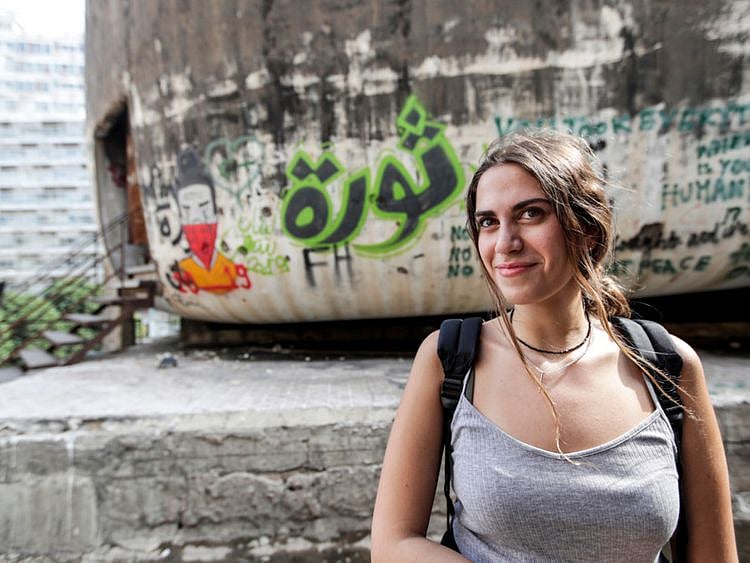Lebanon protest teach-ins revive pre-war landmarks
The Egg has been among several pre-war spaces occupied by academics and demonstrators

Beirut: The Lebanese capital’s iconic egg-shaped cinema looming large behind him, Jamil Mouawad lectured around 20 students on the politics of public space, as demonstrations swelled in the streets below.
“It’s a political act to be able to teach here,” said the professor of political science at the American University of Beirut (AUB), perched on a rectangular base underpinning the bullet-ravaged and long-abandoned building.
“This is a place where knowledge and practice can meet,” he said, as chants against the ruling elite echoed upwards - part of a days-long protest that has forced public access to this and other Beirut landmarks.
Built in the 1960s, the Egg was to be part of a multi-use complex, before Lebanon’s 1975-1990 civil war damaged the building and scuppered development plans.
After the conflict ended, it was threatened by a privatised post-war reconstruction process that levelled architectural landmarks in central Beirut, replacing them with glitzy high-rises.
Solidere - the controversial company in charge of developing much of the area, including the Egg’s environs - limited public access to the space, although the building briefly hosted underground festivals and parties in the 1990s.
But since unprecedented, cross-sectarian protests demanding the removal of an entrenched political elite engulfed central Beirut last week, the Egg has been among several pre-war spaces occupied by academics and demonstrators.
They have organised raves and movie screenings inside, injecting new life into the once-dreary centre of the capital, which hasn’t seen such a lively social scene since Solidere transformed the area into a luxury zone.
“I live 200 metres away from the Egg and I had never stepped foot inside” said Bachar el-Halabi, a researcher at AUB, who moderated a lecture at the site on Friday.
“The history of Beirut is inside it, and the capital’s present and future are just outside, on the streets.”
‘Eggupation’
One recent afternoon, more than 100 people - mostly students - streamed into the Egg’s hollowed interior as an economist and former minister delivered a lecture on “Capitalism in Crisis,” while heavy rain fell outside.
“This space is more important than any university,” Charbel Nahas, an AUB professor, told a cheering crowd of students, the walls around him plastered with slogans demanding the “fall of the regime.”
Posters hanging from metal rails announced the “Eggupation” of the concrete edifice, as a coffee vendor walked through the crowd, clinking small cups.
The talk was part of a series of daily lectures, followed by open discussions among students and activists who try to give structure to an otherwise loose protest movement that has yet to deliver a unified set of demands.
Less than a hundred metres away, an abandoned theatre - fenced off since the end of the war - was also briefly occupied by demonstrators.
Protesters poked their heads out of the theatre’s windows and lined its roof, and some marvelled at its crumbling interior.
Mouawad gave his students a tour of the structure, known as ‘The Grande Theatre’, just before security forces boarded it up.
The moments before the building reverted to its forbidden status were “tense and political,” he said.
Under a nearby tent, facing the Mohammad Al-Amin mosque, Mona Fawaz, a professor of urban studies at AUB, moderated a discussion between her students and other demonstrators.
“In the city that Beirut has become, there are no more public spaces, we are confined to the doors of the university,” she said.
“It is time for us to recover these spaces.”
Sign up for the Daily Briefing
Get the latest news and updates straight to your inbox
Network Links
GN StoreDownload our app
© Al Nisr Publishing LLC 2026. All rights reserved.